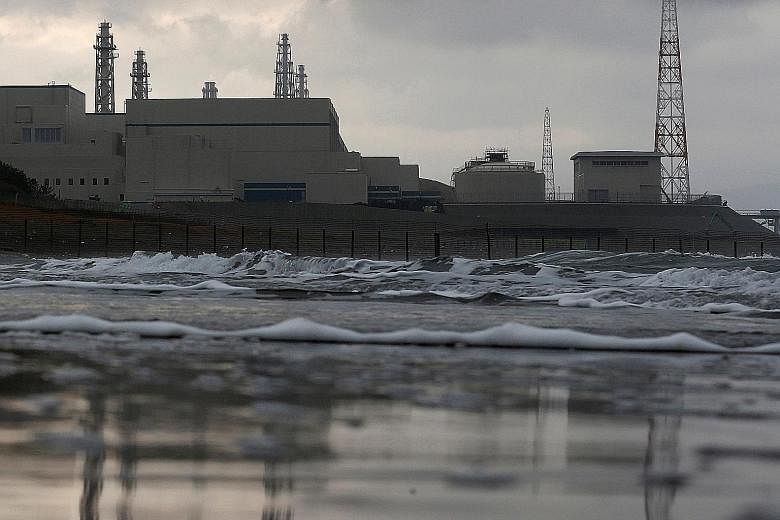TOKYO • The election of an anti-nuclear governor in a region north of Tokyo further challenges Prime Minister Shinzo Abe's energy policy and could mean Japan continues to rely on coal-fired electricity, undermining its efforts to reduce carbon emissions.
Mr Ryuichi Yoneyama, a political outsider, became governor of Niigata prefecture on Sunday on the basis of his vow to keep a nuclear power plant located there shut.
The Kashiwazaki-Kariwa nuclear power station is the world's largest, and its restart is crucial to owner Tokyo Electric Power Co's (Tepco) rebound from the aftermath of the 2011 Fukushima nuclear disaster.
Japan's nuclear industry is still reeling from court orders halting two reactors earlier this year.
Mr Yoneyama's election also means Japan will keep using record levels of carbon-emitting coal to produce electricity, despite committing to cut emissions under the Paris climate change accord signed last year.
This latest setback for nuclear power leaves Mr Abe's energy policy to boost nuclear usage, while also raising the amount of renewable energy to meet emissions targets, nearly in tatters.
And, more than five years after Fukushima, the path to restarting Japan's 40 nuclear plants seems no more clearer.
"Kashiwazaki-Kariwa is of course very symbolic for a lot of people," said professor of public policy Andrew DeWit at Rikkyo University.
"The sad fact is that without some nuclear restarts, Japan is going to burn more coal and that's not sustainable. Climate change has become a much bigger threat since March 2011."
Prefectural chiefs do not have the legal authority to prevent restarts but their agreement is often needed before a plant can start up again. Public scepticism towards nuclear energy since Fukushima means approval cannot be taken for granted.
The government yesterday said it was committed to its policy of backing restarts of units that pass new safety rules, while also promoting renewables and burning more coal and natural gas.
Tepco shares closed down 7.9 per cent at 385 yen a share while the broader Nikkei 225 index was up 0.3 per cent.
REUTERS

